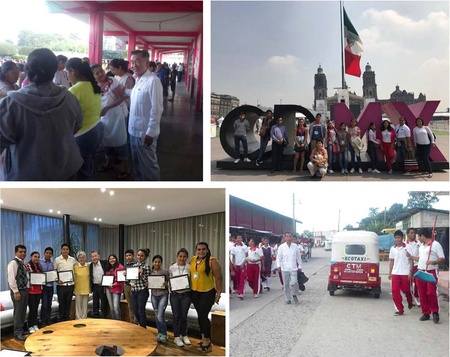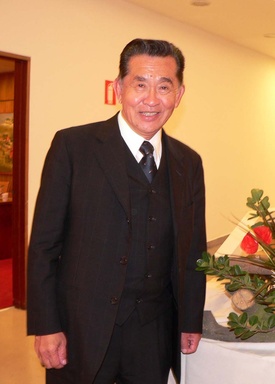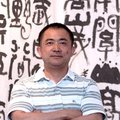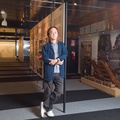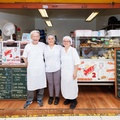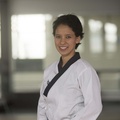Carlos Kasuga Osaka is one of the most recognized Latin American Nikkei for his philanthropic work throughout the continent and for his successful business career in his native Mexico. An accident at the beginning of 2017, which his children presumed had a fatal outcome, led them to ask themselves various questions, including how to continue their father's legacy.
Fortunately, the businessman was able to recover and celebrate his 80th birthday with a valuable gift from his family: the creation of the Kasuga Foundation, through which they direct various projects and seek to continue social work in their country and in the Nikkei communities of America.
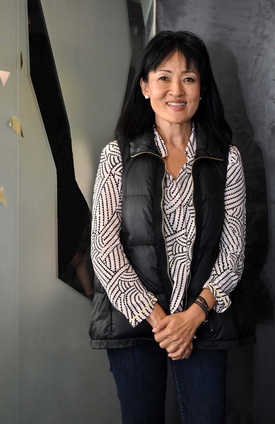
One of the daughters of the Nikkei businessman, Akemi Kasuga, who visited Lima to learn about the artistic projects undertaken by the Peruvian Japanese Association, points out that her father's accident was a moment that shook them.
“The four brothers had great uncertainty about what was going to happen, but it was interesting because it makes you think about what you are going to do, how you are going to overcome this crisis, and one of the questions we had is what we were going to do as family, if we were going to continue with social work.”
They decided yes, but that they would do it in a more institutional way, and from there came the decision to create a foundation. “We thought it was important to do it this way because we would like the next generations of my family to have the commitment and opportunity to help others.”
EDUCATION AND CULTURE
The Kasuga Foundation was created in October 2017 and has focused its work on four projects, those that Carlos Kasuga has been supporting. One is in Acacoyagua, in the state of Chiapas, where the first Japanese immigrants arrived. Young people who graduate from high school are invited on a trip to get to know the capital of their country. “They are things as simple as giving them the opportunity to get on the subway, in an elevator, to see the National Palace, the pyramids of Teotihuacán, to get to know more about what their country is,” says Akemi.
There is also the Akane Museum (named in honor of his grandmother, who adopted that stage name in her role as a poet), which disseminates the history of Japanese migration to Mexico, but which aspires to become a cultural space that accommodates to young artists from various fields: plastic arts, dance, theater, music, etc.
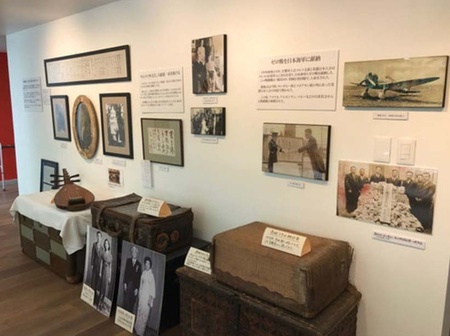
The foundation also promotes initiatives by various institutions in the formation of values such as order and cleanliness. Likewise, he has created the Carlos Kasuga Pride Award, a recognition in honor of his father, which they plan to award at all COPANI (Pan American Nikkei Convention) to anyone who has stood out in any area, be it sports, artistic, cultural, scientific or social. at the American level.
Although these four projects are the basis of the foundation, the Kasugas have been getting involved in other activities, such as the implementation of smokeless kilns at the National Ceramic School of Mexico, supporting athletes or cleaning the lake in the Chapultepec forest. , for which they turned to the Peruvian Marino Morikawa.
SUPPORT FOR ART
Akemi Kasuga longs to return to her work as a ceramist as soon as possible. He studied ceramics in Japan and Sweden and worked in Mexico in this field, but for 10 years he gave way to his family life. She has no regrets – during this time she became a mother, she traveled to Australia – but she feels that it is time to return.
He plans to reopen his workshop in Mexico, but also promote artistic spaces and projects. This is how she came to Peru, interested in the activities that the Peruvian Japanese Association has been carrying out, including the Nikkei Young Art Salon. Through the director of the Kasuga Foundation, Yayoi Shibayama, they contacted the director of Culture of the APJ, Miyuki Ikeho, to learn about these projects with the idea of replicating them in Mexico through the foundation.
“The idea of having biennials, Nikkei art salons at the Pan-American level, became interesting to me. The opportunity that you can open to young artists to contact other artists who in a certain way have the same origins, to have a network between artists from Mexico and the entire continent, can be fantastic,” he points out.
Akemi has taken up the possibility of providing support in this area, in which she feels that it is important for young artists to have support in their beginnings. “In a certain way I also experienced it when I was young, my ability to express myself was through my hands, through the plastic part, but you don't know how to start, you don't know if you have talent, you want to take on the world, and you feel that there You would like to have the support of some institution. This way the journey can be easier.”
THE NEW GENERATIONS
On her visit to Lima, Akemi arrived with her daughter, who was visiting Peru for the first time and was surprised to see a sign in AELU for the donation that Carlos Kasuga made of the synthetic field. “Did grandpa just give this?!” asked his daughter. “Yes, because it is very important to help, if you can do it, you have to be generous,” he replied.
It is like that in his family, with his children and nephews. “That they understand that they have a social responsibility, and that the efforts of our ancestors cannot be wasted. It is important to continue and strengthen,” says Akemi, for whom it is important that the foundation last. “It's like really having a company with social work, I think that the more we can help, the more we will be achieving the desired goal.”
* This article is published thanks to the agreement between the Peruvian Japanese Association (APJ) and the Discover Nikkei Project. Article originally published in Kaikan magazine No. 115, and adapted for Discover Nikkei.
© 2018 Texto y fotos: Asociación Peruano Japonesa



